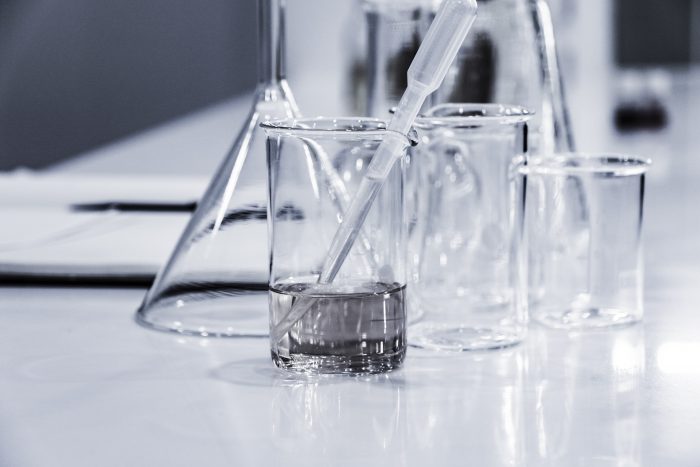And More Importantly — Recommendations from Your Licensed Naturopathic Doctor on How to Treat GERD Naturally
The pharmaceutical world is still reeling since news hit that Ranitidine (or Zantac,) the popular antacid used to treat heartburn and gastro-esophageal reflux disease (GERD) has a tendency to break down into a cancer-causing agent. Over 15 million prescriptions are written each year for babies, children and adults and many more people find Zantac over the counter.
Valisure, a pharmaceutical company that tests the drugs it sells, filed a petition a with the FDA that read in part:
“Valisure tests all batches of all its medications for quality and consistency issues and through such tests detected extremely high levels of N-Nitrososdimethylamine (“NDMA”), a probable human carcinogen, in every lot tested, across multiple manufacturers and dosage forms of the drug ranitidine.”
Since then, numerous manufacturers have recalled this and similar drugs. Walgreens, Walmart, CVS, and Rite Aid have all stopped selling Zantac. The same is true at outlets around the world.
It’s likely family doctors and gastroenterologists will offer different drugs instead. I caution against switching over to a Proton Pump Inhibitors (PPI) as research shows PPIs have been associated with everything from cognitive decline, to osteoporosis and believe it or not, early death. We also know that having less acid in the stomach allows bacterial overgrowth to take place and that bacterial metabolism of dietary nitrites can lead to carcinogenic agents. This kind of complication takes place with any antacid treatment. Those who take PPIs have a higher chance of developing pneumonia and Clostridium difficile infections in hospital settings.
SO, it is clear we need some alternatives to both Ranitidine and PPIs, and we need them soon! Statistics show that one in four Americans are suffering with GERD. Naturopathic treatments are geared at reducing inciting causes, strengthening the lower esophageal sphincter (LES), correcting acid imbalance, healing irritated mucosal membrane and rebuilding healthy tissue in the area. The naturopathic treatment of GERD can promote healing and improve digestion. Over time, and as symptoms improve with the proper information, lifestyle changes and the application of a number of natural medicines, most patients are able to reduce or discontinue conventional GERD medication.
Symptoms of GERD
The most common symptoms of GERD include: burning pain in the throat or chest, difficulty swallowing, belching, sour or bad taste in the mouth, bloating, nausea, dental erosion, chronic coughing or wheezing.
What actually causes GERD?
There is some debate on this but a loosened LES between the esophagus and the stomach is often in play. After getting a head start from saliva in the mouth, our food moves through the esophagus to the stomach. It’s designed as a one way trip. In the stomach, food mixes with stomach acid and digestive enzymes. The stomach is lined with different kinds of cells including those that secrete a mucous type substance so that we do not digest our own stomachs!
When the stomach works up our food with the right mixture of fluids, the slurry is supposed to head south into the small intestine. But if the LES or doorway between the esophagus and the stomach is loose, that acidic mixture can go up instead of down, and hit the lining of the esophagus which does not have mucus secreting cells to protect it. Hence the name gastro-espophageal reflux. That acidic slurry may cause pain, irritation, and over time, damage to surrounding cells.
The LES loosens as we age. We also secrete less stomach acid as we age. Though it seems paradoxical, sometime people with GERD have low stomach acid, not high. It is a complicated physiology related to neurotansmitters and hormones in addition to another thing that helps the LES close better: acid stimulation! And if the sphincter stays loose or too patent, even a less acidic food slurry will irritate the lining of the esophagus. So using medications that reduce acid will not lead to reversal of disease. All the foods GERD sufferers are asked to avoid like chocolate, coffee, tomatoes etc., do not cause GERD but rather aggravate an already irritated esophagus.
What makes a person susceptible to developing GERD?
There is a long list: poor diet, family history, eating food allergens, being overweight, hiatal hernia, pregnancy, stress, tight clothing at the mid-section, smoking, environmental toxins, and certain medications, especially those that are immune suppressive. Men are more likely to have complications of GERD than women.
The Naturopathic Treatment of GERD
We start with the lifestyle recommendations which most providers share: Don’t lie down after eating, don’t do extreme exercise right after eating, slim down if overweight, avoid foods that irritate, raise the head of the bed, eat smaller more frequent meals, do not over do with alcohol and stop smoking. Drink between, not with meals: the latter makes the food/digestive juices mixture thinner, which makes it easier to go in reverse. Taking a walk, especially after a larger meal, can also be helpful.
I would add the idea of taking a good look at the stressors in your life, and seeing where changes might be possible. Stress is a known trigger for GERD and helping to reduce overall stress is one important component of treatment. Exercise, mindfulness meditation, hobbies, time with loved ones, time in nature, all have the benefit of raising our threshold for feeling stress and helping us dissipate the stress we have. Far too many people these days just are not having enough fun!
Eating an anti-inflammatory diet, with so many health benefits, is also important for those with GERD, to help counter the negative impact of inflammation through the body. Many patients find oatmeal soothing. And adding in fermented and cultured foods helps build a robust and diverse microbiome, which is helps to decrease inflammation.
There are a number of nutritional supplements that are also helpful.
Melatonin has been shown to reduce GERD symptoms. Taken at night also helps with sleep which helps pretty much everything, in this case, especially perception of discomfort. Melatonin impacts stomach acid secretion as well as helping to make the LES work more effectively.
Apple cider vinegar or lemon or lime juice, 1 tsp in ¼ cup water before meals can be helpful if the issue is low stomach acid secretion. Consider drinking through a straw as these fluids can impact tooth enamel.
There are a number of botanical medicines that have been used for generations to help treat GERD. Many are now being studied with results that underscore efficacy and safety to help soothe and rebuild the lining of the mucous membrane of the esophagus including: slippery elm (Ulmus fulva), potable aloe vera juice and licorice root (Glycerizza glabra) in the form of DGL.
With regard to nutritional supplements and the treatment of GERD, I often prescribe the amino acid glutamine, which helps heal the irritated stomach/esophagus. A probiotic can help to build the number and variety of healthy bacteria in the gut.
Dosing and frequency of supplements and botanicals are individualized to the patient, based on presenting symptoms, information from diagnostic procedures, weight, diet and other lifestyle factors.
Addressing the Underlying Cause
Naturopathic of approaches to GERD aim to address underlying causes especially those related to lifestyle, diet and exercise habits of patients. ND therapies work toward correcting foundational anatomic and physiologic problems that lead to sustain ongoing GERD. Naturopathic philosophy and the approaches used by NDs rely on the patent’s inherent healing capacity and on the importance of patient education. NDs also lean into those techniques that carry low to no side effect profiles, following all doctors’ pledge to Do No Harm.
And perhaps most essentially, depending on the severity of the GERD, the patient’s capacity to sustain lifestyle changes including maintaining healthy weight, ND approaches offer the chance to reverse the tendency for GERD, to the point that taking nutritional or botanical supplements is no longer needed. I have many former GERD patients in my practice who no longer suffer with GERD or perhaps keep a tin of slippery elm lozenges handy, to use for occasional GERD after dietary or alcohol indiscretion. This is a pathology that for many people is reversible.
For more serious cases of GERD, we work to integrate all the lifestyle and natural medicine approaches and work with prescribing physicians around either changing or reducing medication, but only very, very slowly. Rebound GERD from discontinuing certain meds can be severe.
Working with a licensed naturopathic doctor or other provider who understands these kinds of approaches to help you create an effective, gentle treatment for your GERD makes good sense. Working to limit pharmaceutical exposure in this realm, with the long list of serious side effects growing, is worth your time and effort.
#naturopathic #dramyrothenberg








Read 0 comments and reply